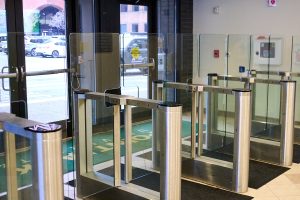Senate Democrats sue over Republican subpoena of Pennsylvania voters’ personal information
Democrat State Senator, Republican spokesperson speak on the ongoing contentious election fraud investigation in PA
October 6, 2021
In November 2020, then Democratic nominee Joe Biden defeated Republican incumbent Donald Trump in the 2020 General Election to become the 46th President of the United States. Since then, Republicans have raised concerns over potential voter fraud, unsuccessfully attempting to prove these claims in multiple battleground states.
Now, it’s Pennsylvania’s turn.
On Wednesday, Sep. 15, the Republican-controlled PA Senate Intergovernmental Operations Committee voted to subpoena voter records from the 2020 General Election as part of an ongoing months-long effort to conduct what has been advertised as an “election audit.”
This subpoena would grant access to the personal data of all Pennsylvania voters who participated in the previous Presidential Election, including their name, address, date of birth and even the last four digits of their Social Security number, according to a Democratic state senator.
Most of Point Park’s student body is made up of Pennsylvania residents. According to an official university fact sheet from the 2020 Fall 2020 Semester, 70% of undergraduate and 90% of graduate students lived within the state. In addition, the university’ class profile states that the incoming Fall 2021 class represents 45 out of Pennsylvania’s 67 counties.
Among those in-state students is sophomore Political Science Major Juliet Jacob, who feels that the subpoena is a bid for political clout rather than a sincere effort to ensure election integrity.
Jacobs said she thinks that the subpoena is a bid for political clout rather than a sincere effort to ensure election integrity.
“It seems to me that the Republican subpoena of voting records is an effort to pander to the ‘MAGA’ voter base and not an attempt to address a genuine concern,” Jacobs said. “It’s been repeatedly proven that there has been no significant voter fraud in the 2020 election, so it’s frustrating to see our state government spend time and money on an act of harmful political theater.”
Pennsylvania represents 20 electoral votes, which are a part of the Electoral College system. This system means that rather than prioritizing the people’s popular vote, a somewhat indirect process allows electors to choose a U.S. President and Vice President. For elections, 270 electoral votes are needed to guarantee a majority. States, like Pennsylvania, with a high number of electoral votes are considered battleground states, which are seen by candidates as essential for winning the election.
During the 2020 election, Pennsylvania played a critical role in being a part of what some analysts call the “blue wall,” which was broken by Trump in 2016. Despite winning the Keystone State in the previous election, Trump had lost it to Biden.
This proved fatal for Trump, as the outcome of Pennsylvania decided the election as a whole for multiple organizations, including the Associated Press, by providing Biden the necessary Electoral College votes to pass the 270-vote majority threshold. This made Pennsylvania a key target of Republican voter fraud investigations.
Jason Thompson, Communications Director for PA Senate President Pro Tempore Jake Corman (R), outlined potential election fraud concerns in a statement to The Globe.
“The data in the subpoenas are necessary to help determine whether there are duplicate registrations, deceased voters or other ineligible voters in the state’s registration system,” Thompson said.
Senate Democrats filed a lawsuit against the subpoena just days later.
Senator Wayne Fontana (D), who represents PA’s 42nd Senatorial District that encompasses Point Park’s campus, shares the concerns of his fellow Senate Democrats regarding the subpoena.
“Earlier in the month, we went to state court to block the Republicans’ attempt to obtain confidential voter information,” Fontana said in an interview with The Globe. “We’re talking about driver ID numbers, the last four numbers of your Social Security number, along with everything else that pertains to folks that vote.”
The primary concern for those against the subpoena surrounds a third party who would consult the data to verify the results of the election.
“This information would be given to a third party, but you don’t know who that third party is,” Fontana said. “So, it really makes you concerned about where that information will end up after it’s taken and distributed to that third party.”
Senate Republicans, however, are confident that the data will be kept safe throughout the process.
“We fully intend to build proper safeguards into any contract with a vendor who will perform the count to ensure this information is kept out of the wrong hands,” Thompson said to The Globe. “A vendor’s ability to keep this information safe is one of the key considerations the Senate Intergovernmental Operations Committee is looking at as they vet companies to perform the work.”
Friday, Oct. 1, was the deadline for Pennsylvania Governor Tom Wolf to comply with the subpoena, though neither his administration nor the state senate have made any public comments since at the time this was written and published.
The present uncertainty surrounding the issue leaves open a range of potential results, which provides an opportunity for the public to take action. Senator Fontana and other Senate Democrats have pushed for a public hearing on the matter to give voters a chance to voice their own opinions.
“We would like the Senate to reconvene as a committee of the whole and an open session to conduct a public debate on the subpoenas, and we would like a public hearing for the public to be able to weigh in,” Fontana said. “But, if they don’t do that, I would suggest that the citizens out there just email and call their representatives from the house and especially, especially, from the Senate.”


















